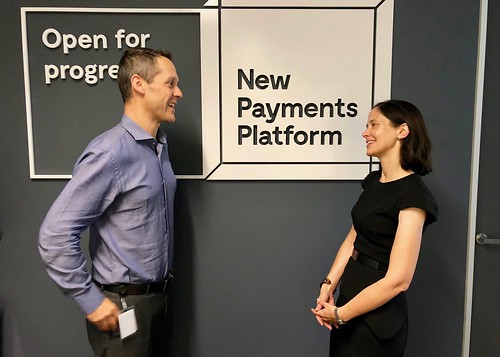Well, this week we saw another milestone in the evolution of the global payments marketplace.
The New Payments Platform (NPP) will enable customers of Commonwealth Bank, National Australia Bank and Westpac to send money via a service called PayID, which requires users to enter only the recipients' mobile phone number or email address. Other financial institutions, including ANZ, will follow.
xxx
To celebrate this event, I went to Australia to record a podcast with NPP Australia Ltd, who developed the system with 13 financial institutions. Adrian Lovney is CEO of NPP Australia and Katrina Stuart is the Executive Manager for Engagement. In the podcast, they explain the key features of NPP and chat about the new products and services that it could enable.
From a UK perspective, I’d highlight three areas where NPP is different to our existing Faster Payment Service (FPS) and may inform debate about our New Payments Architecture (NPA). These are settlement, data and
First, settlement. NPP is a real-time gross settlement system (RTGS), unlike FPS which is a net settlement system.
Second, data. NPP uses ISO 20022, where FPS uses the old ISO 8583, which is why when you Ping money to someone you only get a handful of alphanumeric characters for you payment advice. With NPP you can send huge quantities of data along with the payment advice, which itself can be 200 characters and include the full ISO character set (including emojis, like Venmo).
Third, addressing. NPP allows you to send money to a “PayID”, which can be

Comments
Post a Comment